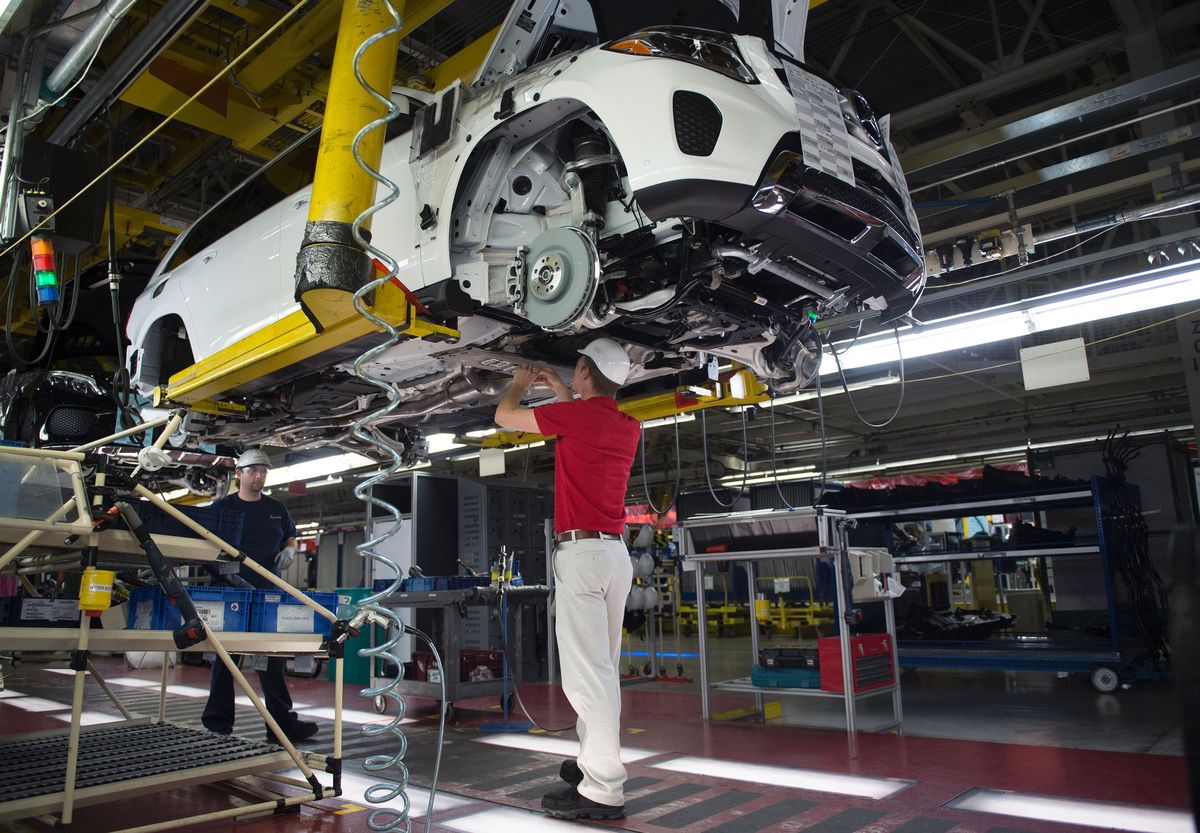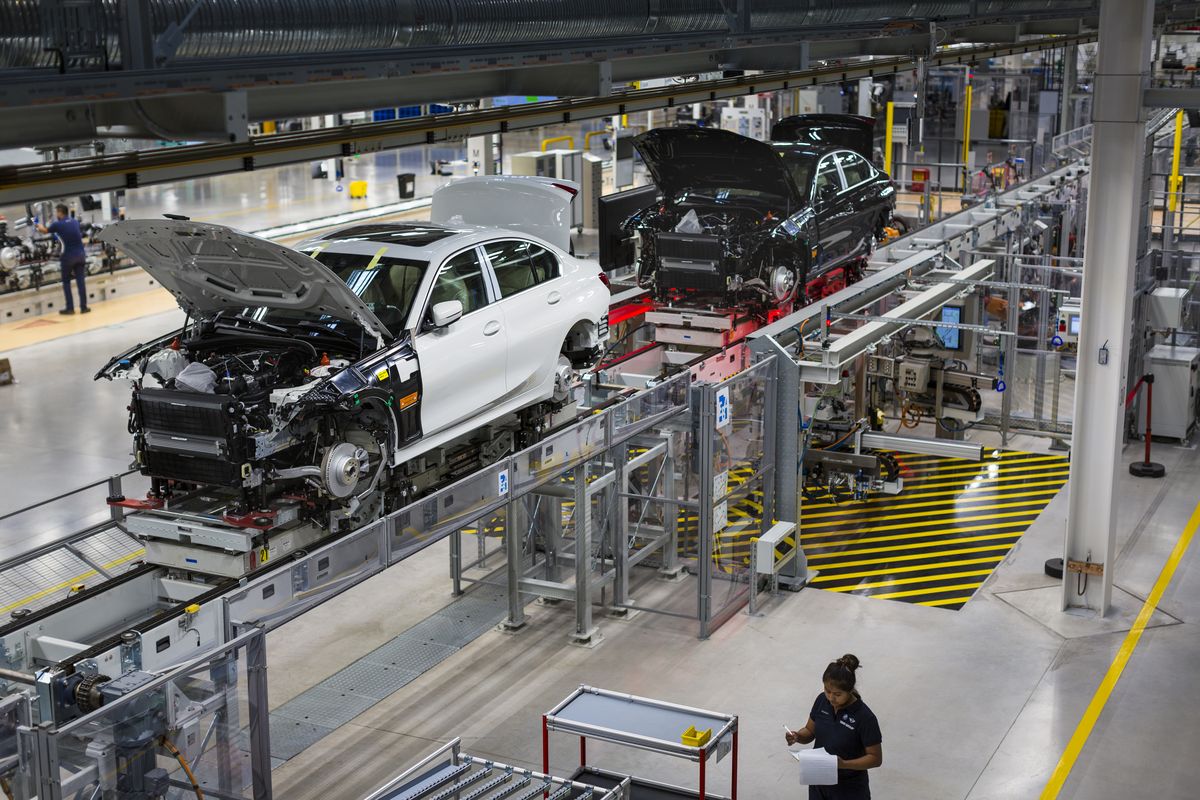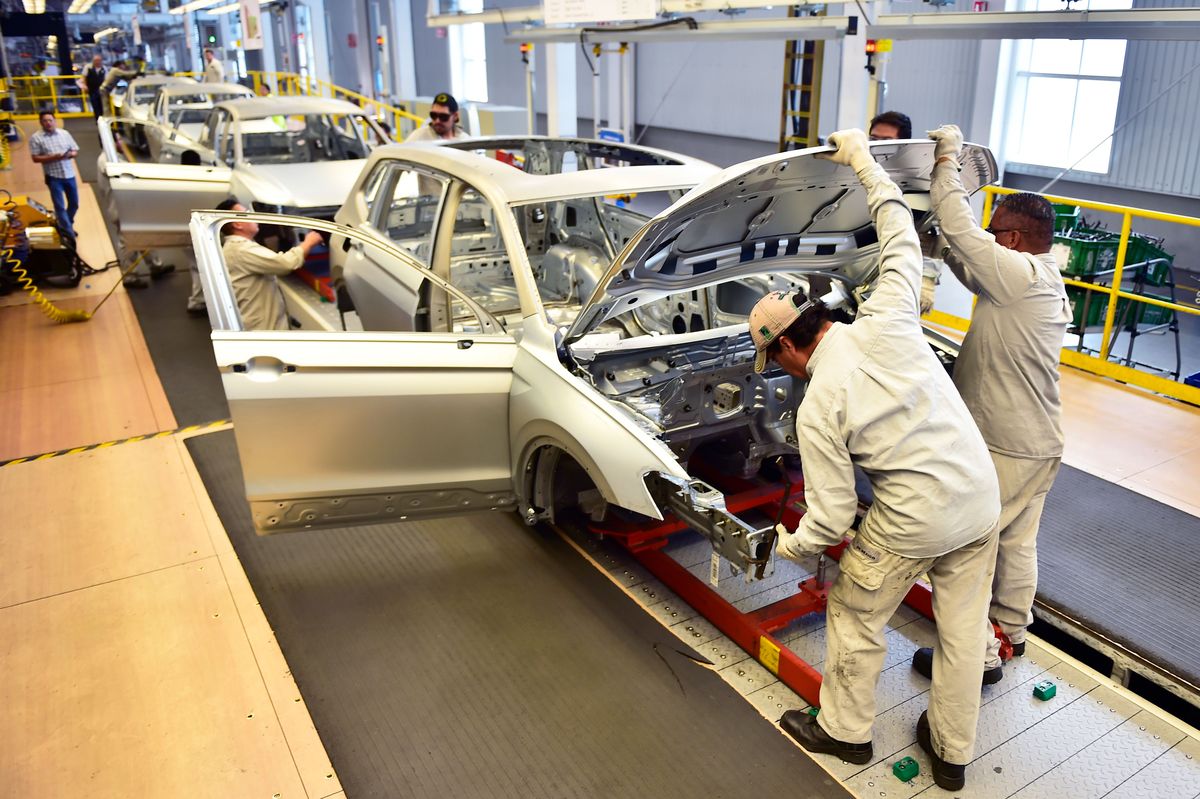It has only been five days since President Donald Trump The U.S. has imposed a 25% tariff on all imported cars entering the country, leading automotive companies to respond diversely. Some brands such as Jaguar Land Rover and Audi have promptly halted their car deliveries to America. In contrast, manufacturers like Mercedes-Benz and BMW are taking an alternative approach for now.
This is due to Mercedes-Benz agreeing to cover the 25% tariff on 2025 model year vehicles, as stated in an announcement from the company. Automotive News On April 7th, the base prices of 2025 model-year vehicles for U.S. buyers won’t go up. BMW is also joining this effort but with less intensity, choosing to cover the tariffs associated with Mexican-produced cars like the 3-Series, 2-Series coupé, and M2 models.

Mercedes-Benz spokesperson Michael Minielly stated that they are continuously monitoring the situation, assessing every possible option, and will make adjustments as necessary based on evolving market dynamics and competition.
Shifting the burden of tariffs, at least initially, isn’t unexpected for high-end carmakers such as Mercedes-Benz and BMW. These two German manufacturers enjoyed strong performances in the American market during 2024 and probably aren't keen on undermining their established local appeal. Moreover, Mercedes produces key models—like the popular GLE-Class and GLS-Class SUVs, along with the electric EQE and EQS SUVs—in Alabama. This implies that a significant number of U.S.-bound Benzes, AMGs, and Maybachs originate from within America’s borders; notably, just the GLE and GLS accounted for over 96,000 out of the company's total 324,528 passenger vehicle sales in the country last year. Therefore, this particular producer based in Stuttgart depends less on imports compared to numerous other international brands operating stateside, suggesting that only a fraction of its cars would face the full impact of the 25% tariff hike.

This also applies to BMW, which thrives on domestic sales of its X-series SUVs and runs a large plant in Spartanburg, South Carolina, where these vehicles are manufactured. a grand total of 371,346 automobiles In 2024, crossover vehicles made up 207,594 of the sales in the U.S. Among these, the X3 and X5 stood out as top performers, with 68,798 units and 72,348 units sold, respectively.
Companies such as Audi and JLR, which lack an American manufacturing base, have adopted a distinct strategy. Following President Trump’s introduction of tariffs, they halted vehicle deliveries to the United States. JLR led this move by suspending their imports starting from April 6th, closely followed by Audi who stopped theirs on April 7th. Furthermore, every new Audi arriving in the U.S. after April 2nd won’t be distributed to dealerships for sale.
Since it already has 37,000 vehicles in stock in the U.S., Audi claims they can delay new shipments for up to two months, as reported. a German news outlet Audi’s parent company, Volkswagen, is encountering comparable difficulties since most of its U.S.-bound shares come from Mexico. Consequently, this major German automaker is reportedly dealing with issues related to this import situation. considering a price increase for U.S.-bound models.

Asian automakers, so far, are approaching the tariffs from a different angle. Hyundai and Genesis have all agreed to keep prices level for at least two months, while Kia has yet to make an official ruling. Honda, Toyota, Subaru, and Mazda are also laying in wait to see how the situation develops. Nissan is even decreasing pricing for certain of its models To assist present automobile buyers in finding an affordable option, a possibility enabled by Nissan’s manufacturing plants in Tennessee.
President Trump’s statements regarding the early round of tariffs aimed at autos centered on bolstering the strength of the U.S. automobile sector. Nevertheless, these tariffs have created significant disruptions within the industry when viewed from both consumer and business standpoints, resulting in various challenges. U.S. companies such as Ford and Stellantis offering staff prices to employees Special deals apply to specific qualifying models. In the end, it’s uncertain how effective these tariffs will prove for the Big Three auto manufacturers since importing crucial parts from abroad persists as a common global industry norm. This reality suggests that vehicles produced within the U.S. frequently incorporate significant portions of imported components—now all affected by President Trump's tariffs.
Interested in buying a car? Discover your perfect match on the MSN Autos Marketplace.